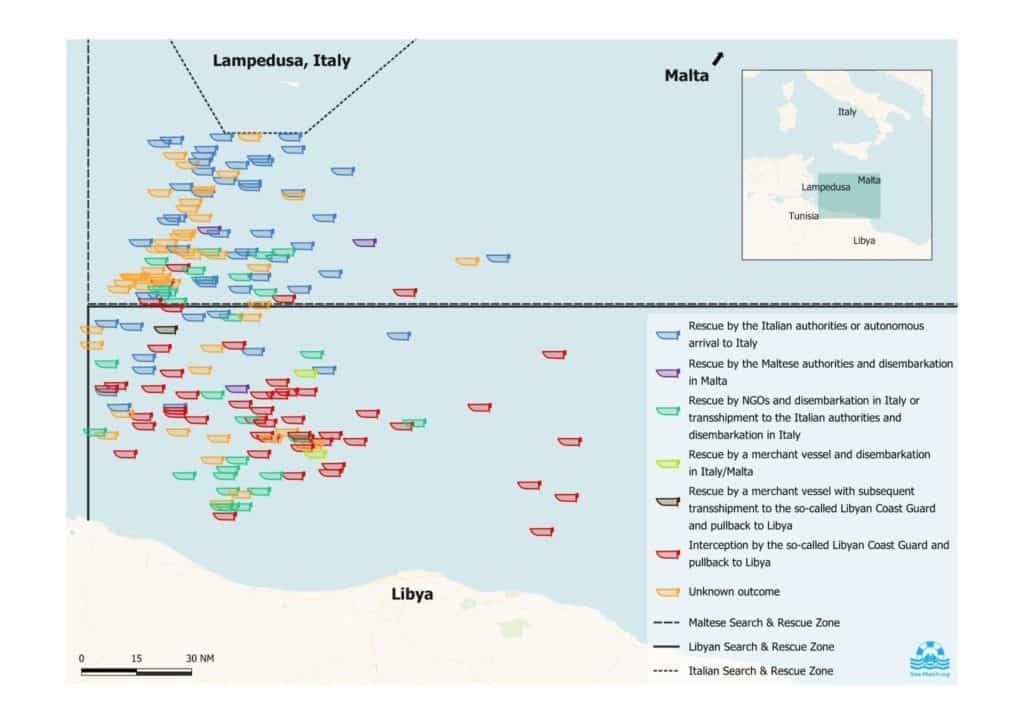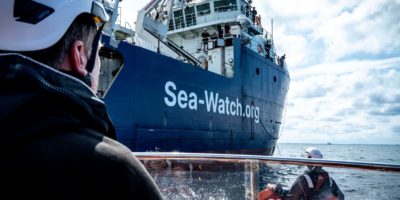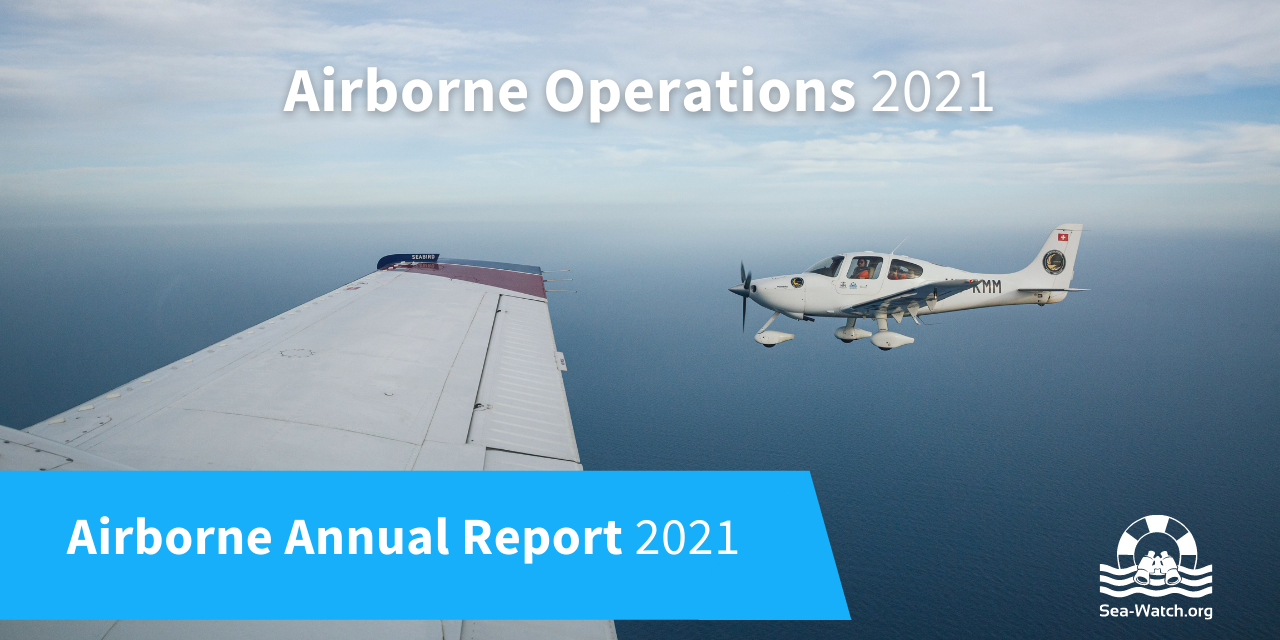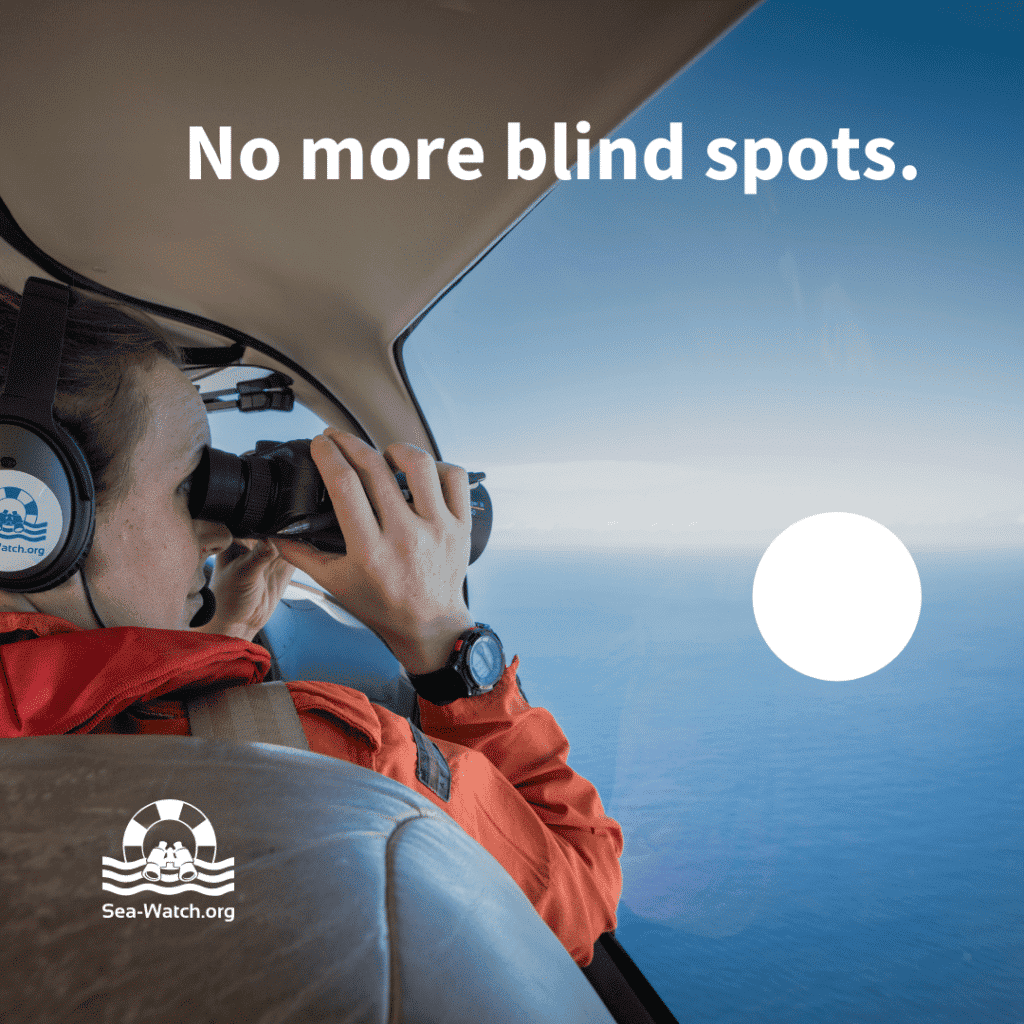In 2021, 1.553 people drowned while attempting to cross the Mediterranean Sea from Libya to Europe. Nevertheless, the European Union and its Member States do not consider it necessary to create safe and legal escape routes. The situation in the Central Mediterranean is politically intentional and is being decided upon again every day. European migration policy is designed to prevent migration to Europe as much as possible.
Additionally in 2021, the steady expansion of the so-called Libyan Coast Guard, enabled and politically legitimised by the EU and its individual Member States, resulted in 32.425 people being intercepted at sea and returned to Libya in violation of international law. These people are deprived of their right to asylum. After their return, they often re-enter a cycle of violence which consists of severe human rights violations in Libya, the dangerous attempted flight to Europe, being returned again, and fleeing once more.
Since 2015, Sea-Watch has been working to counteract the politically initiated rescue gap in the Central Mediterranean. Initially, this was enacted using ships for the direct rescue of people from distress at sea. Since 2017, Sea-Watch has also operated reconnaissance aircraft – our Airborne operations. The monitoring flights undertaken by Airborne are aimed both at sighting people in distress, whereupon information is passed on to the relevant authorities and surrounding ships in order to push for a swift rescue, and also at maintaining a focus on documenting human rights violations. The operations are conducted together with the Swiss NGO Humanitarian Pilots Initiative (HPI).
The Airborne operations carried out in 2021 and the resulting documentation of human rights violations reveal once again:
- The systematic, calculated delays and non-assistance of European Member States and the delegation of the duty to render assistance to the so-called Libyan Coast Guard, even from European SAR zones
- The coordination and facilitation by the European Border and Coast Guard Agency Frontex and the European military Operation EUNAVFOR MED IRINI in interceptions and pull-backs to Libya undertaken by the so-called Libyan Coast Guard
- The systematic exclusion by Frontex of civil rescue ships from information about distress cases, with the knowledge that these vessels would bring rescued persons to Europe
- The need for the continuous involvement of merchant vessels in Search-and-Rescue events due to the lack of European rescue assets and the lack of support from authorities for merchant vessels engaged in rescue operations, which as a consequence results in the non-assistance of distress cases by merchant vessels
- The need for NGO vessels in order to uphold the law and save human lives in the Central Mediterranean













